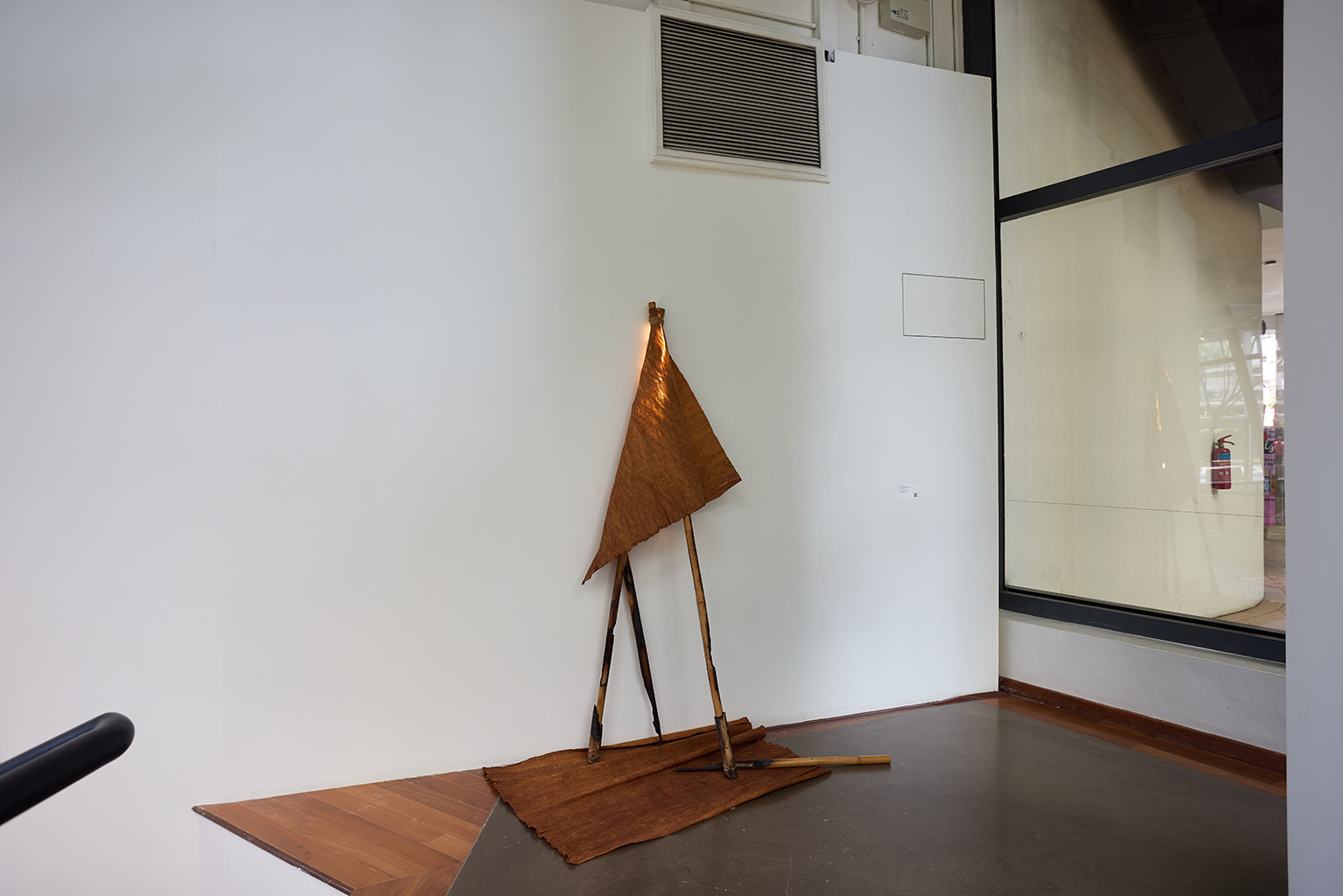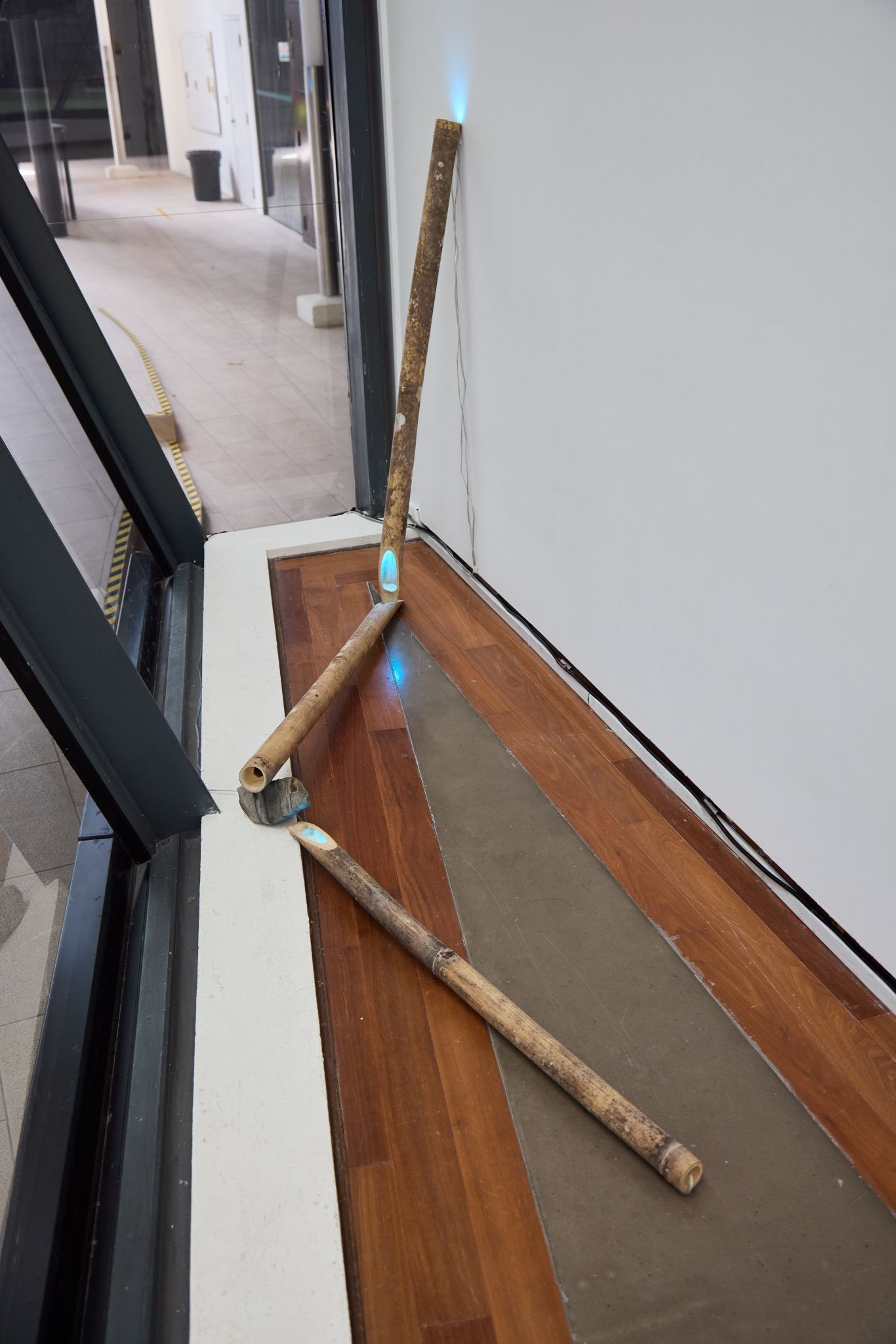Shen Jiaqi
Asal Usul (The source) (2022)
barkcloth,burnt bamboo poles, led light
Asal Usul (The source) is an arrangement of objects selected for their relation to the tribal communities in the Sarawak region, and assembled with the intention of evoking the experience of a communal gathering around a fire, whilst at the same time communicating elements of tension from inevitable change.
During the 19th century, before the creation and mass production of modern textile fabrics, bark cloth was the dominant material of choice for clothing production in tropical regions of the world. Bark cloth was notably used for baby carriers and funeral clothing. The lengthy labour process meant that the production of these garments carried an intentional significance.
During the 19th century, before the creation and mass production of modern textile fabrics, bark cloth was the dominant material of choice for clothing production in tropical regions of the world. Bark cloth was notably used for baby carriers and funeral clothing. The lengthy labour process meant that the production of these garments carried an intentional significance.
There were specific stipulations for production – from the number of days required to certain taboos that must be avoided during the process. The accompanying rituals when harvesting the material of bamboo is a further reminder of the unspoken code of the land: to respect pre-existing terrain by regarding the natural landscape and all that it provides as an entity that is tolerant, but unconcerned with human frailty. Using light to emphasise these materialities, this work is a reminder of how the objects and their functions exists only in relation to their current timeline.


Kurnia (The gift) (2022)
bamboo poles, river rock, led lights
Kurnia (The gift) is an arrangement of bamboo cuttings made to resemble the irrigation system used to enable remote communities to access water. Rivers and water bodies have been the source of many folk tales and ritualistic practices in most parts of the world, and in Sarawak, rivers have long been associated with the flow of mysterious cosmic powers and fertility.
Using a rock from a river to balance the poles, as well as light to indicate nature giving water and humanity receiving it, it is a reminder of how our existence in the world is often an act of careful balance, one that requires humilty and mutual respect to natural forces.


Shen Jiaqi’s practice examines themes of individual existence amidst perennial changes of the environment, and social encounters in relation to and as a result of perennial developments. By investigating the conditions to manifest spaces that suggest comfort, privacy and security, she contemplates the collective subconsciousness of yearning for sanctuaries within existing landscapes. Working between the media of painting, light and object installations, her works use materials and colours that are reminiscent of a state of transience between memory and present reality, while evoking new interpretations of familiar spatial presences.
Born in Singapore in 1989, Shen obtained her Master's of Fine Arts at LASALLE College of the Arts in partnership with Goldsmiths, University of London in 2022. She studied painting at the Nanyang Academy of Fine Arts in 2010, and visual art and drama education at the National Institute of Education in 2015. Her works have been part of several exhibitions and public showcases in Singapore, including Ever-Were, her third solo exhibition, that was held at Cuturi Gallery in 2021. She has also exhibited internationally in Beijing and Jarkarta. For her work, she has received a Highly Commended award in the 2021 UOB Painting of the Year, Emerging Artist category.